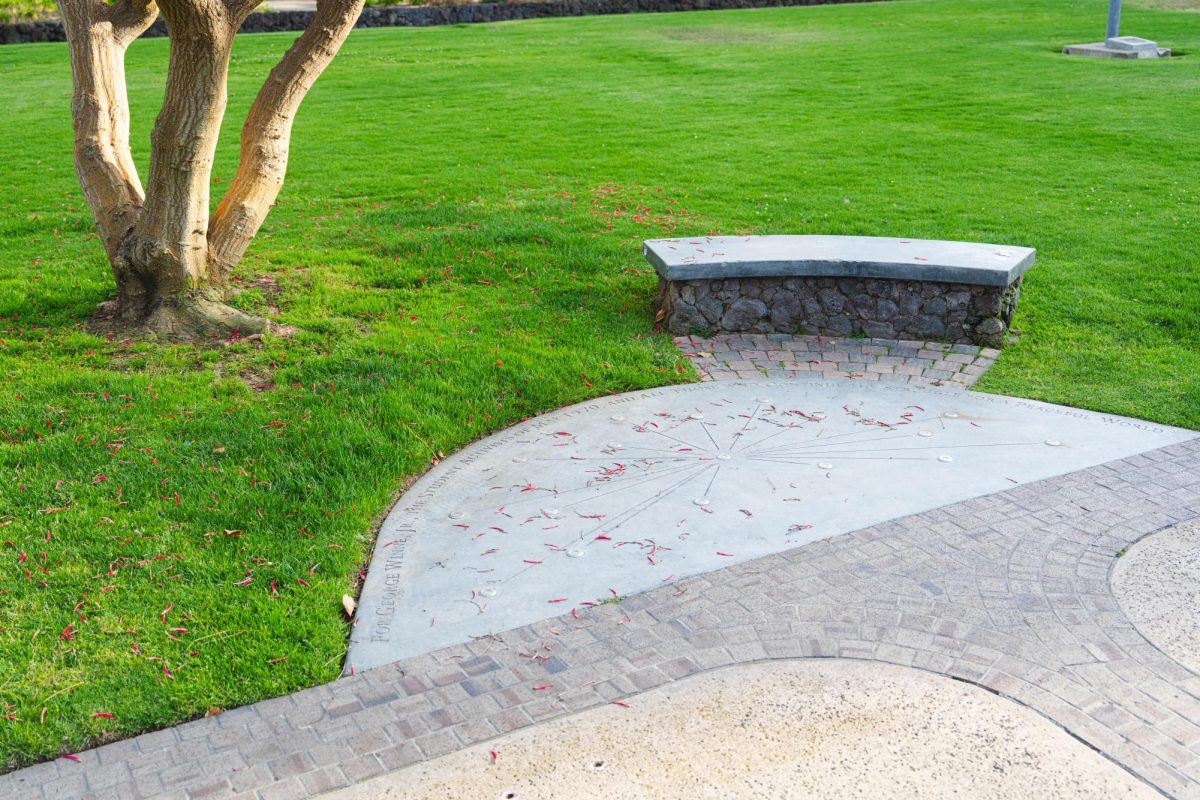The pamphlet also gives advice to students in situations involving law enforcement, advising students “don’t lie,” “do show ID” and “do make sure an officer knows you do not agree to be searched,” instructing that even if you still get searched, that “you make your opposition known.”
Bryce Farrington, Eleanor Roosevelt College student and vice president of student advocacy, works with 12 other student advocates under the Associated Students Office of the President to represent students in disciplinary hearings and other issues relating to the UCSD Student Conduct Code, which is currently under revision.
When a student feels they have the grounds to protest the sanctions held against them by administration, student advocacy is one place they can go.
“If the student doesn’t want to accept responsibility, they go through a formal hearing process and that’s in front of a judicial board or an administrative review,” Farrington said. “Normally the director of student conduct and that process will decide whether or not they’re responsible.”
Throughout the year, the Office of Student Advocacy handles both academic cases, in which a student has been accused of breaking the Student Code of Academic Integrity, as well as non-academic cases that include violations of the Student Code of Conduct, the comprehensive set of rules that govern student behavior at UCSD.
Among the non-academic cases, Farrington estimates that about nine out of 10 of the ones the office of student advocacy works with are alcohol-related. In cases in which a student is accused of breaking the Student Conduct Code, the residential dean of the college that student attends then issues a set of sanctions for the student in question, such as being put on academic probation, or attending a seminar.
According to Farrington, students aren’t aware of the fact that they don’t always have to accept the dean’s sanctions.
Farrington says that this year has had an especially high number of non-academic cases reaching the advocacy board — this could be attributed to recent efforts by the office of Student Conduct in directing students to the Office of Advocacy when they feel that they have grounds to contest their sanctions.
“A majority of our cases are still academic,” Farrington said. “It used to be probably 80 percent academic and 20 percent non-academic and now that’s getting a little bit close to even. There’s been a four or five fold increase in non-academic cases this year.”
The administration has also tried to implement more training to ensure more uniformity throughout campus law enforcement, but according to Farrington, the experience you have with law enforcement will still differ significantly depending on the college you live in.
According to Farrington, the current director of student conduct, Ben White, is working to centralize the disciplinary process, and gets along pretty well with the current board of advocates — something he said “is not always the case.”
“Our perspective is very different from the perspective of the administration and it has often been very much at odds with the administration,” Farrington said.
One of the issues is the highly bureaucratic nature of the entire process, which includes administrators from multiple departments. A large part of the job of a student advocate is simply to decipher the tricky protocol behind disciplinary action, as well as the Student Code of Conduct, which outlines rights for students.
“There’s just multiple layers from the first notification. If you are an 18- or 19-year-old student and this is your first encounter with discipline at an institutional level, you have to go meet your dean [and] there’s multiple pages of email that are going to go back and forth in the process,” Farrington said. “It might not be clear to you as the student what your options are. A lot of students don’t realize that when they meet with the dean they don’t have to accept responsibility.”
Farrington also notes a lack of accountability from the administration.
“We find it very problematic when we have a student that was written up by an RSO and we go through the entire process of the judicial board hearing and when we go to the hearing, the RSO who reported the violation doesn’t even show up,” Farrington said. “The hearing still goes forward, even though we had questions for the RSO if the RSO’s story didn’t make any sense. That happens a lot actually.”
Even among the different colleges, Farrington explained, implementation of discipline varies greatly, as certain deans and RSOs are more inclined to exercise disciplinary action than others.
“The administration has a huge amount of power to sanction students. You want to see that be treated with a lot of responsibility,” he said.
Students can, and are urged to by the Office of Student Advocacy, to understand their rights and the rules of residential life by reading the conduct code at revisedcode.ucsd.edu.
No residential deans, representatives from the Office of Student Conduct, or from the department of Residential Security could be reached for comment.
While the rules of student conduct are administrative regulations and are separate from state and federal laws, Farrington says that constitutional rights still apply to on-campus situations. For example, unreasonable search and seizure is not allowed without reason — but any evidence of alcohol consumption or an “unsafe” living condition can warrant such search and seizure.
The Office of Student Advocacy is limited to issues regarding the code itself. Often, non-academic cases will entail violations of state and federal law, which would fall under the jurisdiction of Student Legal Services.
“Student legal services does a ton of great stuff about rent, parking and fines,” Farrington said
Students can reach A.S. Student Advocacy at [email protected] or
(858) 534-5920.
Mina Nilchian
Focus Editor






